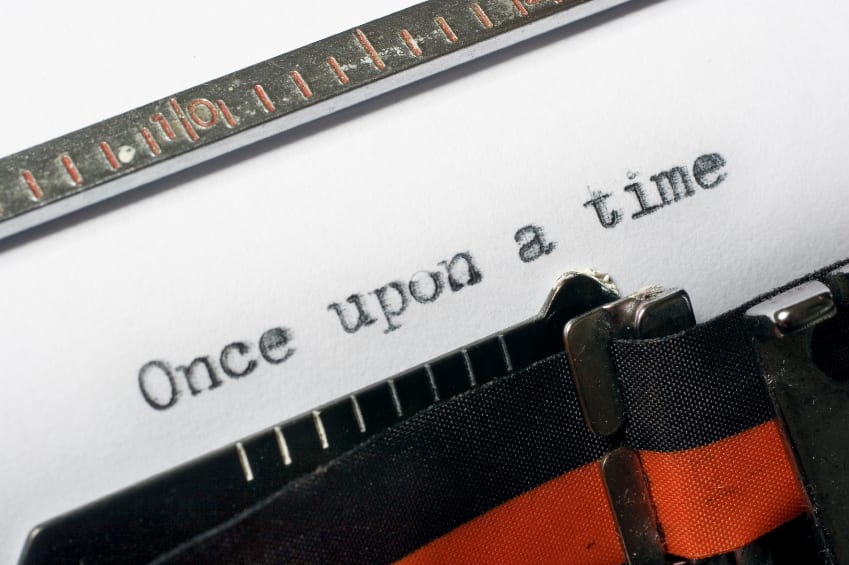In the New York Times a few weeks ago there was an article done about Marshall Duke a psychologist at Emory University. He was asked to explore ritual and myth in American families. What he has found is that children who know a lot about their families and their histories tend to do better when they face challenges. “The more children knew about their family’s history, the stronger their sense of control over their lives, the higher their self-esteem and the more successfully they believed their families functioned.”
Duke and his colleagues used the “Do You Know” measure that they developed themselves to test children’s knowledge about their histories.
Some of the questions were as simple as:
“Do you know where your grandparents grew up? Do you know where your mom and dad went to high school? Do you know where your parents met? Do you know an illness or something really terrible that happened in your family? Do you know the story of your birth?”
The more answers the child knew correlated greatly with the child’s emotional health and resilience.
They also studied different types of family narratives and found that the most helpful and valuable one was the “oscillating family narrative,” like the following:
Dear, let me tell you, we’ve had ups and downs in our family. We built a family business. Your grandfather was a pillar of the community. Your mother was on the board of the hospital. But we also had setbacks. You had an uncle who was once arrested. We had a house burn down. Your father lost a job. But no matter what happened, we always stuck together as a family.
I could not get this article out of my head as we headed into Pesach. I was struck with the thought that the Jewish people have this down pat. Our children know their family histories through the stories that we tell over and over again when we teach them the stories of Tanach. We have the ultimate “oscillating family narrative.”
Over Pesach, I read Rabbi Jonathan Sacks’ Haggadah. With the idea of the oscillating family narrative in mind, the following paragraph stood out for me:
Not by accident is the Book of Genesis largely about families and marriage: Adam and Eve, Noah and his household, Abraham and Sara, Isaac and Rebecca, Jacob, Rachel, and Leah. Knowing the Bible as well as we do, we rarely if ever stop to consider how strange this is. But it is strange to the point of being unique. Every other literature until modern times…is about epic heroes, gods or demigods, figures of legendary strength and power. The stunning originality of the Book of Genesis is that its heroes and heroines are ordinary people in ordinary situations, made extraordinary not by their power but by their loyalty to one another and to God.
But an even more powerful example of the Jewish “oscillating family narrative” may be the Haggadah. Rabbi Sacks says that although the majority of Jews may not have access to a Torah class or may not have learned Torah, many have a strong connection to Pesach and will make sure that they join a Seder, thereby hearing the story of Yetziat Mizraim, the Exodus from Egypt.
He maintains that the Haggadah and the Exodus story has had overarching impact on the Jewish people and Western society as a whole. It has social, political and religious implications far beyond the actual story. He also suggests that the Haggadah and story of the Exodus has sustained the Jewish people and made us strong and resilient, like no other Biblical story with its themes of freedom, might does not make right, and social justice.
Arami Oved Avi and more particularly, Vhi She’amda are just two examples of the Haggadic liturgy that talks about how the Jewish people endured through so many trials and tribulations.
This is what has stood by our fathers and us! For not just one alone has risen against us to destroy us, but in every generation they rise against us to destroy us; and the Holy One, blessed be He, saves us from their hand!
Go forth and learn what Laban the Aramean wanted to do to our father Jacob. Pharaoh had issued a decree against the male children only, but Laban wanted to uproot everyone – as it is said: “The Aramean wished to destroy my father; and he went down to Egypt and sojourned there, few in number; and he became there a nation – great and mighty and numerous.”
It seems as if modern day psychologist are just finding out something that we have known for thousands of years. Can it be that the Jewish people have had a monopoly on the “oscillating family narrative” with our Torah? What other nation has a “history book” that they retell every year? This can certainly be one of the many reason this why Jewish families are known for their strength and are often impervious to challenges other families may have.
Let us continue telling the stories of our own personal struggles and how we overcame them and the trials and triumphs of the Jewish people to our children to keep them strong and emotionally healthy and up to the challenges of every day life.
Adina Soclof, MS. CCC-SLP, works as a Parent Educator for Bellefaire Jewish Children’s Bureau facilitating How to Talk so Kids will Listen and Listen so Kids will Talk workshops as well as workshops based on Siblings Without Rivalry. Adina also runs parentingsimply.com.
The words of this author reflect his/her own opinions and do not necessarily represent the official position of the Orthodox Union.


